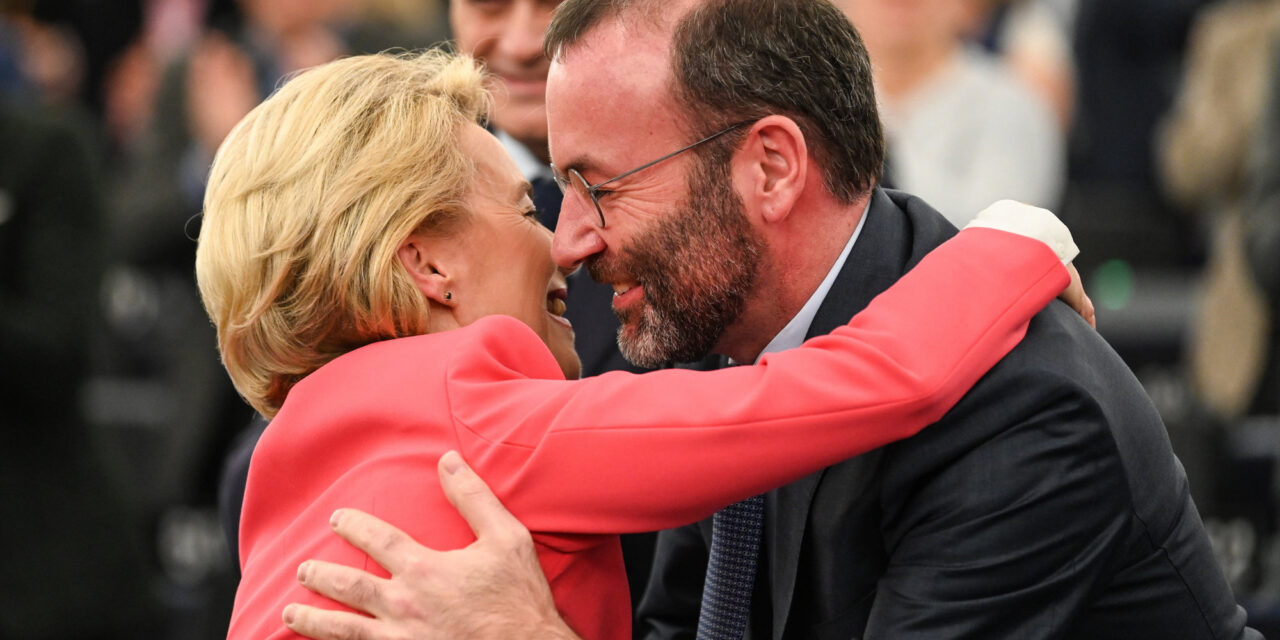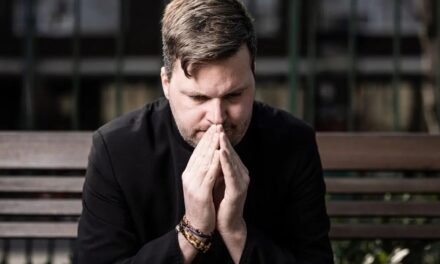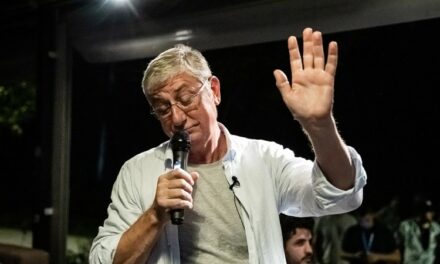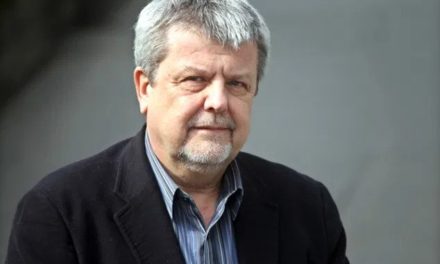I don't know who is with him, but I am disturbed by the brat style of the top European leaders. They get together from time to time for a work dinner, collapse, hug, kiss-kiss...
I don't know who is with him, but I am disturbed by the brat style of the top European leaders. They get together from time to time for a work dinner, collapse, hug, kiss-kiss, as if the day before yesterday they took part in some kind of relaxed party together, and call each other by their first names. I always remember the great saying about them: "you are a branch". I mean, those who are accepted into the club. The body language of the Tiszás barrel speaker revealed a lot about the recording process. On the terrace of the Hilton in Buda, Weber was greeted by a manly forehead-rubbing in Brussels. It was immediately apparent that MaPöti was accepted into the club. To the club that deceived the voters. The beautiful, colorful diagrams of the EU clearly show that Europe has moved to the right, that pro-peace, Christian and nation-state forces have become the majority. The language of the balance, the party family that once called itself the right-of-center Christian Democratic People's Party came out and aligned itself with the left, socialists, and liberals in Merkel fashion. Because you can't do it with the right-wing, they are populists, extremists, nationalists, as the adjectives attached to them have burned into the consciousness over the years.
This collapse reminds me of the Hungarian opposition coalition. There, too, it did not matter what the voter thought, whether a right-winger was acceptable to the Socialists, or whether a deka could be convinced of a green dialogue program. They, the political leaders, thought that this method of power engineering works at the party level, and that the blind electorate will pull the plug on whoever they say.
Now there was deliberate misrepresentation, the voters fell for it, they believed in the traditional Christian Democratic value system, and the People's Party leader, Weber, who had turned into a son of Lenin, betrayed them.
The European leaders divided the leading functions among themselves, the heads of government voted, regardless of the will of the electorate. Macron's party achieved 15 percent, Scholzé 13.9. The Belgian prime minister resigned due to the bad result, Rutte is on the run from the Netherlands and the earthquake caused by the EP elections could be listed. The future leaders of Europe were decided by ladies and gentlemen whose legitimacy was uncertain. In order not to be mistaken, the dinner guest was also the hero who defended the freedom of Europe, posing in the middle of the group in his torn outfit.
Let's see who will rule Europe for five years!
Here, for example, is this Russian-hating Estonian woman, Kaja Kallas. He was elected EU Commissioner for Foreign Affairs, he will act, negotiate, make proposals and prepare a decision on the issue of the Ukrainian-Russian war. The EU's stance on the issue of war can be pre-empted, because hatred of Russia is an identity-forming element for Estonians. Sometimes the German knights, sometimes the Danes, sometimes the Swedes ruled this people, but they hate the Russians the most, perhaps because their historical memory hardly goes back more than one and a half hundred years.
One third of the country's population are Russians who stayed here from Soviet times, and they are treated like Ukrainians treat their Russians, that is, they are discriminated against.
Of course, this does not bother anyone in the EU, the issue of national minorities is the responsibility of the member states. There is no rule of law problem with the Estonian Language Act of 2011, which mandates the exclusive use of the Estonian language not only in public administration, but also in public places, even in pubs. Compliance with the law is monitored by language police. One third are not even Russian by name, they are called foreign speakers.
Kallas is the able Prime Minister of the Estonian Liberals. We are talking about a small country, so it is forgivable that her husband, Arvo Hallik, is the owner of a company called Novaria Consulting. Through this company, the clever husband acquired a 30 percent stake in Star Logistics, which does business with Russia. When all this was revealed, he refused to say what exactly the company had delivered to Russia and to what extent it was involved in the evasion of sanctions. The reaction of the Estonian Prime Minister's wife was simply that she does not know all of her husband's businesses. Although she actually gave her husband a loan of 350,000 euros for the Russian business, she just somehow doesn't remember whether it was really for them. In any case, he already paid it back, as he needed the money for the new house the family was building.
Or there is the elected president of the European Council, the tanned socialist Portuguese, António Costa. He is a very popular politician in Brussels, for eight years he was an official at the Brussels dinners of the heads of government and state, where he stood out with his cheerfulness and ability to compromise. Then one fine day, in 2023, the prosecutor's office searched his house on suspicion of corruption and bribery. They also found a 78,500 euro cap in his chief of staff's desk drawer. He voluntarily resigned the very next day, even though the prosecutor's office found out a week later that he was wrong. There was another Costa in Costa's government, Costa Silva, just like we have two Nagys in the Orbán government. It turned out that the names of the prime minister and the economy minister had been swapped, and of course the latter was the fool. He was responsible for developing the post-Covid recovery program, in Hungarian, for spending the money from which we Hungarians have not received a single cent so far.
This Costa didn't get in trouble either, he stayed in the government, he was just transferred from the economic department to the maritime ministry.
Anyway, in the Costa government elected in 2022, 13 ministers resigned in 16 months, there were more than 45 house searches, and the whole of Portugal reeked of corruption.
A book could be written about the corruption scandals of the re-nominated committee president, Ursula, or as the Germans call her, Flinten Uschi.
The nickname stuck to him during his years as Minister of War. With his ill-considered decisions, he amortized the Bundeswehr, concluded more than suspicious corruption contracts, but to avoid being held accountable, his friend Angela flew him straight to the velvet chair of the EU Commission president. Eszement continues his politicking where he left off in Berlin, still ordering autonomously via text message, only now in larger batches. He mainly travels in the vaccine, weapons and agricultural business. Those who nominated him either do not know about all of this, or are themselves the beneficiaries of corruption scandals. The current situation is exciting. Because as recently as 2022, a Belgian activist-lobbyist named Frederic Baldan filed a lawsuit against him, accusing the president of the European Commission of, among other things, the destruction of public documents, unjust enrichment and corruption. The trial, originally scheduled for May of this year, was postponed to December so as not to interfere with the EP election campaign. The plaintiff filed a complaint and initiated an accelerated procedure. He believes that if von der Leyen is re-elected, he will continue his law-breaking practice with his usual methods, and due to his position, he will be able to put pressure on the courts, the European Public Prosecutor's Office and himself personally. He claims he and the more than 500 plaintiffs who joined the prosecution could face retaliation if von der Leyen is re-elected. There is also a jurisdictional dispute regarding the court: whether a Belgian court has jurisdiction in this case, because cases affecting the reputation of the EU institutions, which affect the trust of EU citizens in the institutions, fall under the competence of the European Public Prosecutor's Office.
Belgian courts are increasingly burdened by EU corruption cases, yet the Belgian judge insisted on handling this case. Perhaps because he would not like to see Flinten Uschi at the head of Europe for another five years, or because he simply wants to practice law according to his oath. In a letter, they asked the guardian of European values, Vera Jourová, and the candidate Manfred Weber to persuade von der Leyen to withdraw.
The People's Party was summoned to the hearing, but no one showed up. They wanted to delay the procedure so that they could allocate the main EU posts before the verdict.
The Belgian judge, on the other hand, saw the absence as a breach of court and conducted the trial without the defendant. Uschi had just one week to arrange something in the Belgian court, but there is no need to fear him! The verdict was handed down the day before the EU summit, the plaintiff's complaint was rejected, so his appointment was given the green light. Zsévé, Móricz would say, because he picked everyone's pocket. Corruption permeates the skies of Brussels. Two did not vote for it at the EU summit, the Hungarian and Italian prime ministers.
Now I have presented only a few of the corruption cases of the newly elected EU leaders. I also looked at Transparency International's corruption index. In it, I saw that the most corrupt country is Hungary, the leader in the Union, and in the world it fell from 42nd place in the Gyurcsány-Bajna times to 76th place. In contrast to us, the leader of the region is Estonia, they have no corruption, the Germans are sixth, and Portugal is 12th. Of course, there are systemic rule of law problems in Hungary, for example in the practice of justice. How good it is that the European Union and its eminent nations can set an example for us! Just make sure you don't accidentally follow it!
Author: historian Irén Rab
Source: Magyar Hírlap
Cover image: Ursula von der Leyen, President of the European Commission, receives the congratulations of Manfred Weber, Group Leader of the European People's Party (EPP), after MEPs approved the composition of the committee in the European Parliament's meeting room in Strasbourg on November 27, 2019. MTI/EPA/Patrick Seeger













